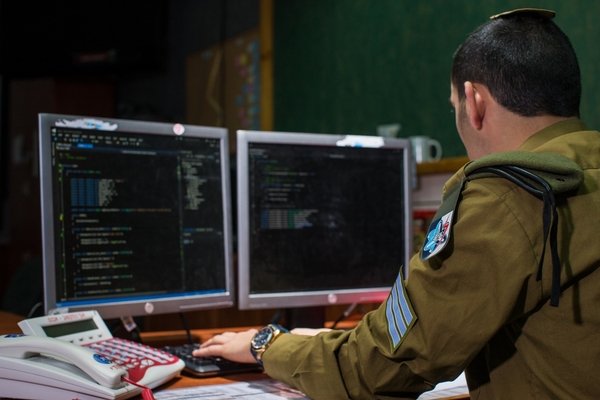
Israeli ‘Cyber-Dome’ Will Counter Iranian Attacks
Iran and Israel have been engaged in cyber warfare in recent years, with Iran attacking a broad array of targets, and Israel focusing primarily on Iran’s nuclear program.
The Israel National Cyber Directorate (INCD) is developing the Cyber-Dome, a new project to counter cyber-attacks, based on Big-data and Artificial Intelligence, and with an overall approach to proactive defense.
In his first public speech, Gaby Portnoy, Director General of the INCD, presented on Tuesday at the annual Cyber Week hosted at Tel-Aviv University data revealing that 1,500 attacks were stopped during the last year by INCD’s teams. It appears that this number pertains to major attacks on critical infrastructure.
Relating to the attackers, Portnoy said that “there is no longer only one type of an ideological official enemy. On the one hand, Iran has become our dominant rival in cyber, together with Hezbollah and Hamas. We see them, we know how they work, and we are there. On the other hand, the spectrum was also stretched – to attackers, attack groups, proxies, independent crime organizations, and private people”.
Presenting the Cyber-Dome, an analogy to Israel’s successful Iron Dome rocket defense system, Portnoy said that it “will elevate national cyber-security by implementing new mechanisms in the national cyber perimeter, reducing the harm from cyber-attacks at scale.”
“The Cyber-Dome will also provide tools and services to elevate the protection of the national assets as a whole. The Dome is a new big-data, AI, overall approach to proactive defense. It will synchronize nation-level real-time detection, analysis, and mitigation of threats,” he added.
“We need to protect our national assets in the best possible way and make cybersecurity protocols we use for critical infrastructure available for more sectorial organizations – government and private,” Portnoy stressed. “You cannot fight cyber aggression alone. You have to have partners, at home, in your defense community, in the government, in the different sectors, in the academy, in the private sector and around the world.”
Israel is considered a global leader in cybersecurity, and approximately 25% of all global investments in cybersecurity go to Israel.
Israel has developed advanced security protocols, as cyber-attacks on Israel have risen exponentially in the past several years, reaching up to two million attacks against crucial Israeli infrastructure daily. Its rise as one of the world’s leaders in cybersecurity has been boosted by cooperation between the military, government, education, and private sectors, a level of partnership unmatched in the Western world.
‘A Significant Attack and Exceptional in its Intensity’
Iran and Israel have been engaged in cyber warfare in recent years, with Iran attacking a broad array of targets, and Israel focusing primarily on Iran’s nuclear program.
Israel has also reportedly carried out several successful cyberattacks against critical Iranian infrastructure.
Most recently, one of Iran’s major steel companies was forced to halt production on Monday after being hit by a cyberattack, one of the most devastating such assaults on the country’s industrial sector. The state-owned Khuzestan Steel Company said that the plant had to stop work until further notice “due to technical problems” following “cyberattacks.”
An anonymous hacking group calling itself “Gonjeshke Darande” (predator Sparrow) claimed responsibility for the attack. “These companies are subject to international sanctions and continue their operations despite the restrictions,” the group said, citing their links to Iran’s paramilitary Revolutionary Guard.
Tamir Hayman, Managing Director of Israel National Security Studies (INSS) and former head of IDF Intelligence corps, said that the attack on the steel plant in Iran was “a significant attack and exceptional in its intensity,” and “regardless of the question of the identity of those behind the attack, these abilities do not belong to the common hacker, and indicate high ability and expertise.”
From Israel’s point of view, “it is right for civilian enterprises and organizations to improve their defense against this type of attack. The defense is possible, and its absence is negligence.
Reuven Eliyahu, chief technology officer at the Ministry of Health, told the Knesset in November 2021 that Israel’s health system faces some 100,000 attacks every month.
In October 2021, the Iranian Black Shadow group hacked multiple Israeli sites. Earlier that month, the Hillel Yaffe Medical Center’s computer system crashed after experiencing a ransom cyberattack. It took the hospital over a month to fully recover its systems.

